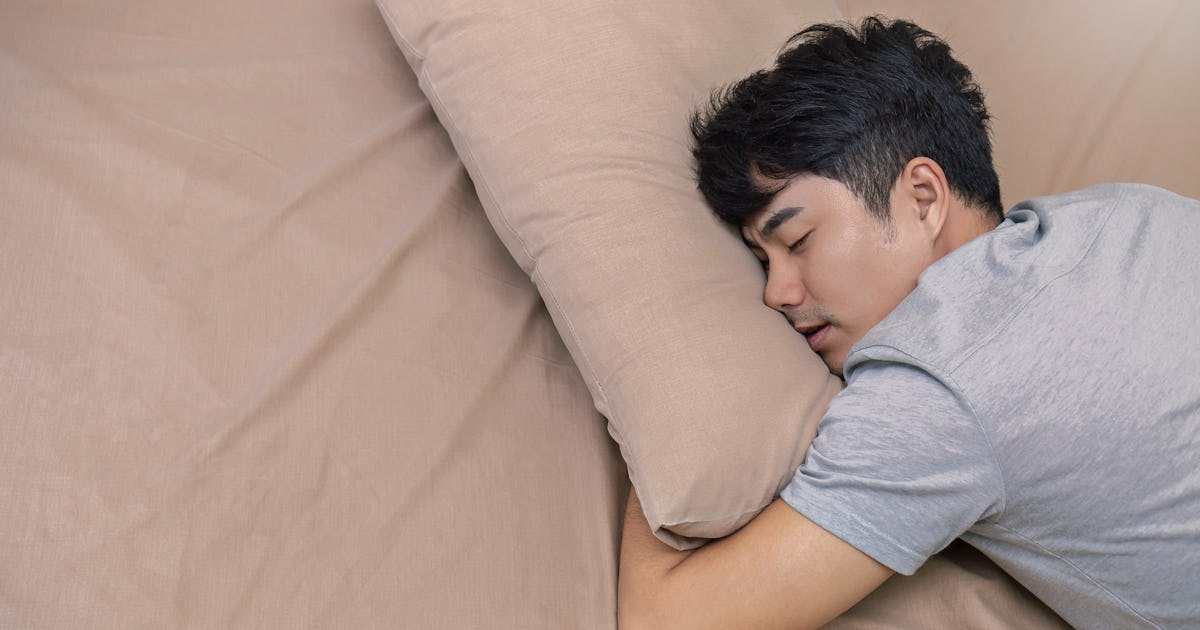
If you enjoy hiting the snooze button at least once before getting out of bed, here’s a good reason to keep doing it. In a new study, people consumed fewer calories when they extended their sleep time by an hour. The latest researcher contributes to bulk of good science showing proper sleep is incredibly beneficial to your health — and even an extra 60 minutes can pay off.
What’s new — The latest research, published last week in JAMA Internal Medicine, found that participants who prolonged their sleep durations through personalized sleep consultation reduced their daily caloric intake by about 270 calories, compared with a control group that continued their usual sleep habits.
The participants didn’t change what they ate, nor did they alter their exercise routines. By design, the only change was sleep.
“[The results have] huge implications, I think, for weight loss programs or weight maintenance programs,” Esra Tasali, lead author of the study and the director of the Sleep Research Center at the University of Chicago tells Inverse.
LONGEVITY HACKS is a regular series from Inverse on the science-backed strategies to live better, healthier, and longer without medicine. Get more in our Hacks index.
Science in Action — Researchers at the University of Chicago recruited 80 adults, all with body mass indexes between 25 and 29.9, the “overweight” range of the Body Mass Index scale (though recent research shows BMI alone is likely not a good indicator of health) and under-rested by CDC standards.
Participants also had to sleep on average for less than 6.5 hours per night (the recommended amount for adults in the U.S. is about 7 hours) consistently for 6 months at least.
After two weeks, the 80 participants, aged 21 to 40, were divided into two groups. One came into the lab and the researchers and a sleep physician gave them personalized advice on how to improve their sleep. “[We] took into consideration people’s social obligations, work schedules, family situation, even their pets and children,” says Tasali.
This lead to an average extension of 1.2 hours, or 72 minutes, on the sleep time of this intervention group over the next two weeks.
The second group, a control group, continued as they were. Their sleep habits stayed the same.
The researchers calculated the caloric intake of both groups by combining measurements of weight (done daily by the participants at home) and body composition (performed at the lab) with results from a doubly labelled water test. In this method, subjects drink water containing traceable isotopes. From tracking them in urine samples, researchers can measure metabolism.
On average, the participants who were sleeping more reduced their daily energy intake by approximately 270 calories a day and lost one pound throughout the four-week study.
Three participants in the sleep extension group decreased their caloric intake by more than 500 calories, one of them by more than 750.
Why it’s a hack — Certainly, one pound lost over a month is nothing to write home about, but the results are in line with previous research on the positive effect sleep has on our health.
Scientists have found several ways in which poor sleep disrupts appetite and metabolism. For instance, sleep has an effect on hormones, including two hunger-regulating ones: ghrelin, which the stomach releases to signal hunger to the brain, and leptin, which fat cells release to indicate fullness. Studies show that even after a single night of poor sleep, the body makes less ghrelin and more leptin.
As a result, people feel hungrier and eat more. One meta-analysis found that, on average, sleep-deprived people ate 385 more calories than those got a decent night’s rest.
Lack of sleep also seems to make people more inclined to eat high-calorie foods. The part of the brain that reacts to immediate reward from fatty food seems to be be activated by poor sleep.
One reason for all this could be that insufficient sleep negative affects one’s judgement, like it does many brain functions. But also, from an evolutionary psychology perspective, it makes sense that if one feels tired, the body will seek energy sources, by eating more food and/or food packed with fats and calories.
Beyond diet, poor sleep has a negative effect on resting metabolic rate, the rate at which the body burns calories without activity. Some scientists have theorized that sleep allows the metabolism to rest and self-regulate, just as it does the rest of the body.
How this affects longevity — A host of preexisting research links obesity with persistent poor sleep and excess body weight have been linked to a range of chronic health issues. Though its important to note that body weight alone, and BMI for that matter, is never the only factor, and the connections between body weight and health are still being untangled.
Its also key to point out that the treatment given to the treatment group in this study — personalized sleep consoling — is not be accessible to everyone.
However, the University of Chicago’s Tasali says that “without going to a health care provider,” people could “start thinking about their bedtime routines,” including the often-given piece of advice of ceasing use of cell phones and tablets before bed.
Hack score — Five out of ten ignored alarm clocks ⏰⏰⏰⏰⏰